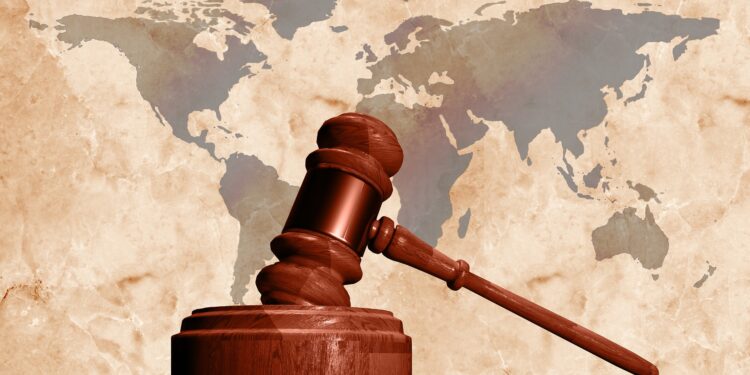The start of the trial of former president Hashim Thaçi of Kosovo is a contribution to making international and internationalised justice appear more balanced and impartial.
It is crucial that after a war, the leaders of both warring parties be prosecuted for their most serious crimes. If only one side is prosecuted, it may appear as victors’ justice. In Nuremberg, only the surviving political and military leaders of nazi Germany were prosecuted for their horrible atrocities, like Auschwitz. The International Military Tribunal did not go after allied commanders and politicians that had bombed civilian targets in Germany to terrorise the population. “Hitler nostalgists” still use the victors’ justice argument in Germany today, regardless of the evidence presented in Nuremberg. This one-sidedness can undermine the credibility and acceptance of the otherwise very justified and warranted Nuremberg prosecutions.
During the Kosovo war, which culminated in 1999, rebels of the ethnic Albanian majority in the Serbian province of Kosovo fought against the Serbian police and the army of the Federal Republic of Yugoslavia, of which Serbia was then a constituent part. Eventually, the western military alliance NATO helped the Kosovo Liberation Army UÇK to seize power in Kosovo by bombing Yugoslavia. Under that pressure, president Slobodan Milošević agreed to withdraw the Serbian police and the Yugoslav army from Kosovo.
Milošević became the first head of state to be indicted for war crimes by a tribunal of the United Nations. Louise Arbour, the then chief prosecutor of the International Criminal Tribunal for the Former Yugoslavia (ICTY), indicted Milošević while the war was still ongoing in 1999.
Milošević was ousted by a massive popular uprising after he had lost the Yugoslav presidential elections in 2000. In 2001, then Serbian prime minister Zoran Đinđić put him on the plane to The Hague. His trial for genocide, crimes against humanity and war crimes in Kosovo, Bosnia and Croatia started in 2002. He died in his UN cell in Scheveningen in 2006 before the judges could pronounce a verdict.
There was no retribution in the Milošević case, but other military and political leaders of the Serbian leadership in Belgrade were convicted and sentenced by the ICTY.
The victims of the crimes of the UÇK had to wait a quarter of a century to see the trial against the most important military and political leaders start.
ALSO READ: Kosovo Tribunal to begin trial of former president Thaçi on Monday
The ICTY tried to prosecute them as well, but there were serious problems with witness intimidation. Carla Del Ponte of Switzerland, who had succeeded Arbour as ICTY Prosecutor when Milošević arrived in The Hague, shocked the conscience of humanity when she published her memoires shortly after she had transferred the baton to Serge Brammertz of Belgium. She wrote that she had found indications that the UÇK had killed Serbs in neighbouring Albania to steal and sell their organs.
The ICTY had no territorial jurisdiction in Albania as its mandate allowed it only to prosecute crimes allegedly committed in the territory of the former Yugoslavia. And the ICTY could only prosecute crimes against humanity committed during an armed conflict, whereas the organs were allegedly stolen after the Kosovo war. Del Ponte tried in vain to convince the United Nations Security Council, which had created the ICTY as its “subsidiary organ”, to broaden her mandate.
But the publication of “La caccia” (“The hunt” for war criminals) led to a public outcry. The Council of Europe, the continent’s principal intergovernmental human rights organisation, mandated Del Ponte’s fellow countryman Dick Marty to conduct a thorough investigation. Marty found credible indications of organ theft, other war crimes, and crimes against humanity and sent a report to the Council in Strasbourg.
This incited the European Union to initiate another investigation, the Special Investigative Task Force (SITF) led by US prosecutor Clint Williamson, who had already investigated Milošević’ crimes for the ICTY. After three years of thorough investigations, Williamson found credible evidence of crimes, but there was no tribunal to bring charges.
The EU, the USA, Switzerland and a few other countries convinced (with some pressure) the politicians in Kosovo to set up a special tribunal with the necessary jurisdiction, established for security reasons outside Kosovo, in The Hague, like the ICTY. The tribunal is an “internationalised tribunal”: it is formally a Kosovar court but staffed only by internationals, to avoid leaks and witness intimidation.
The prosecutors of the special Kosovo Tribunal did not find sufficient evidence yet for the “organ harvesting” charge to indict an individual; the Thaçi trial is about other crimes like murder, torture and “enforced disappearances”.
But even if the initial suspicion has not been charged yet, international and internationalised justice become more balanced with the start of the Thaçi trial: more than 20 years after the start of the Milošević trial, his Kosovar counterpart goes on trial in The Hague as well.







